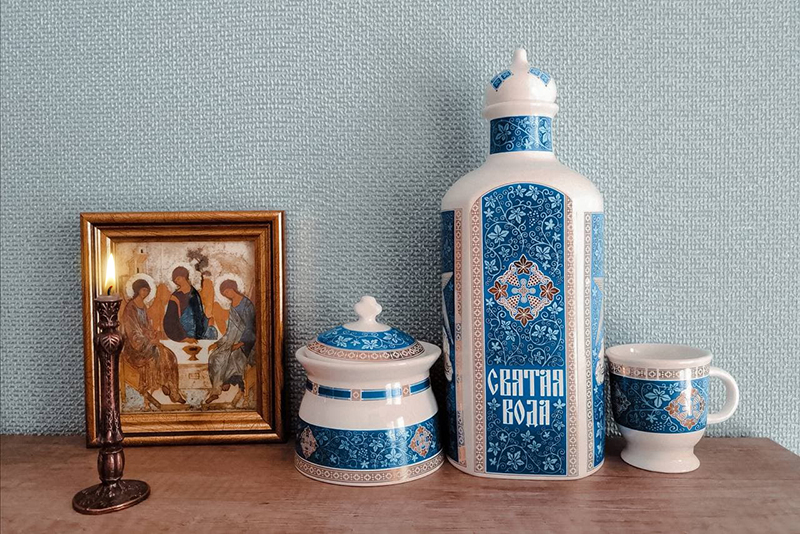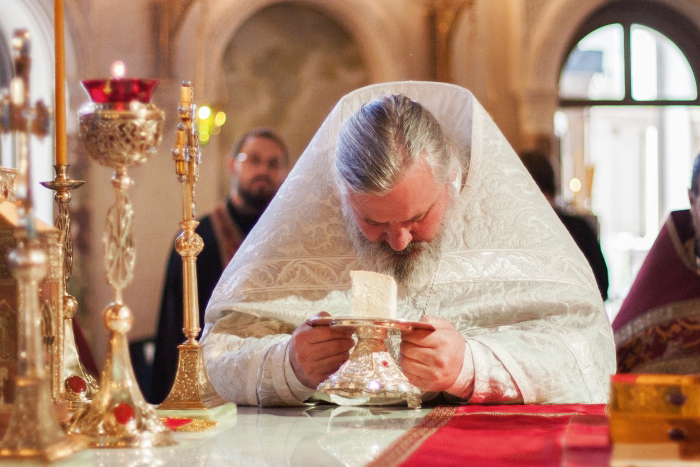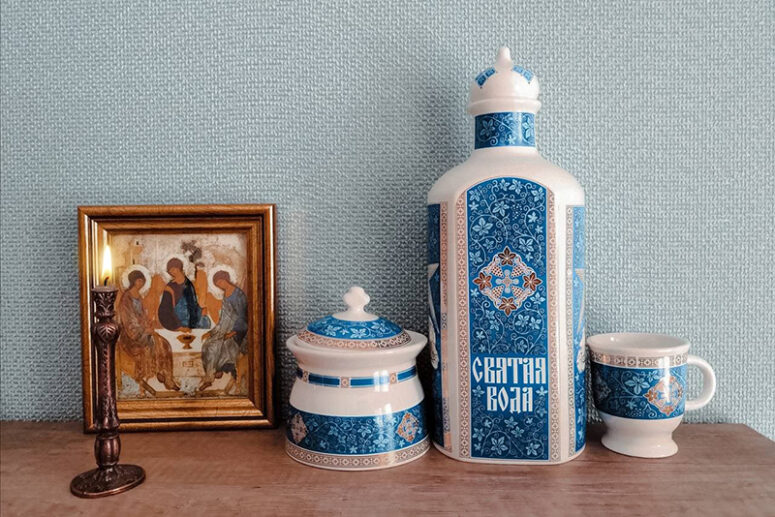
Holy water and prosphora are gifts that strengthen us on our life path to God. However, their grace-filled properties are manifested only when a person accepts these sacred items with prayer, sincere faith, a pure heart and a desire to be closer to God. Reverence for sacred objects is an expression of our reverence for God, Who sends down His grace through them. How should these objects be stored and used correctly at home?
The Meaning of Holy Water and Prosphora
Holy water is consecrated either during the Great Blessing of Water on the Feast of Theophany or the Lesser Blessings of Water. It can also be the water from a holy spring. There are different traditions for using the Epiphany water or the holy water, consecrated during the year. All of these traditions treat holy water with appropriate reverence.
The use of prosphora in many traditions is similar to that of the antidoron, which is partaken instead of communion. Not being able to take communion every day, we can attain the grace of the Holy Spirit by eating with faith a small amount of prosphora (as well as antidoron or artos) with holy water. Of course, this does not fully replace the Holy Communion, whose significance is immeasurably higher, but being a symbol of the Eucharist, the prosphora can give daily support to our spiritual and physical strength. Some saints are known to have limited their daily meal to only prosphora and water. Among them is the Venerable Theodore of Sykeon (6th century), who left home at the age of 14 and lived at the church of the Great Martyr George, eating only one prosphora a day. Venerable Isaac of the Kiev Caves (11th century), becoming a monk, chose to lead an edifying life in a cramped cave and ate one prosphora every two days.
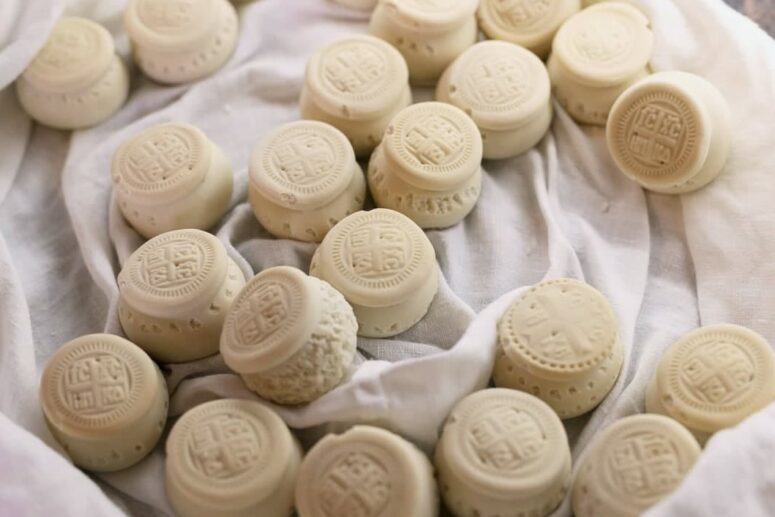
Using Holy Water and Prosphora at Home
There are no strict rules limiting the use of holy water and prosphora by a Christian at home. According to tradition, it is customary to take a small amount on an empty stomach with special prayer and reverence on the days when a person does not receive Communion. Perceiving the prosphora as a substitute of the Holy Communion, the Church Fathers, as a rule, do not bless women to eat them during menstruation.
In addition, holy water (in special cases and with the blessing of the confessor, with prosphora) can be eaten at other times of the day, regardless of the meal. According to the Instructions for the feast of the Baptism of the Lord, contained in the Typicon, those who limit themselves in the use of holy water because of eating food are wrong, “for the grace of God was given to sanctify the world, and of all creation…” Some holy fathers (among whom there were also doctors) blessed people to drink holy water more than once a day in case of illness or in moments of strong temptations. However, it is important that this freedom is not perceived as permissiveness, and that a person approaches this holy substance with the fear of God.
Other ways to use holy water:
- since ancient times holy water is used to sprinkle dwellings or cattle,
- some known church fathers advised to sprinkle food with holy water before eating,
- for medicinal purposes, holy water is wiped with a cloth over the face of a patient with fever; there is a monastic tradition of wiping the last drops of consumed holy water crosswise on the face.
It is certainly inappropriate:
- to superstitiously perform any magical actions with holy water,
- to allow animals to drink holy water,
- to use holy water for making tea or cooking meals.
Storage
In order to store holy water and prosphora with reverence, it is necessary to find a special place for them (for example, next to icons). Do not store holy water in the refrigerator. Due to its special properties, it will remain fresh for a long time. Do not place bottles with holy water on the floor. It is recommended to sign the bottles with holy water to avoid pouring it out by accident.
It is not recommended to bring large containers with Epiphany water from church, trying to store plenty of it for the whole year. It is known that one drop of Epiphany water can consecrate a whole bottle of regular water.
It is not reverent to be drinking holy water straight from a bottle. There are special cups designed for this purpose.

Is allowed to dispose of a bottle, used for holy water (after drying it well). However, to avoid mixing holy water bottles with common kitchenware, it is recommended to use a separate vessel for it at home, (for example, a ceramic one). The form of such a bottle will correspond to its function, helping the partaker to feel reverence without extraneous associations.
Prosphora is most conveniently stored when cut into small pieces while still fresh, and dried. To protect it from spoilage, keep it in a linen bag or a designated ceramic prosphora bowl.
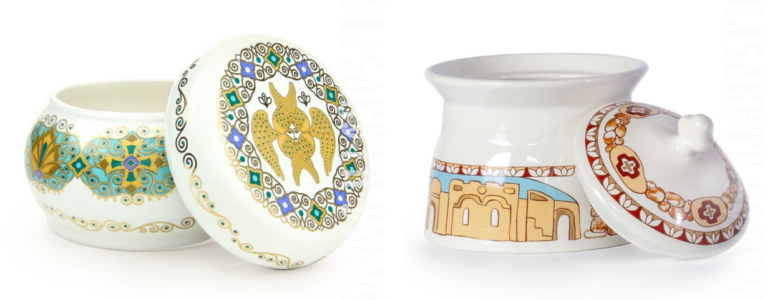
You can consider purchasing a beautiful ceramic set, designed to store and use holy water and prosphora reverently at home.
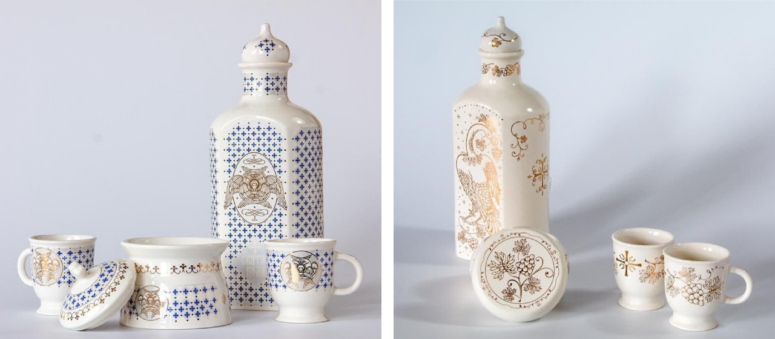
What to Do If Spoilage Does Occur?
Despite the fact that holy water usually stays fresh for several years, in some conditions it may become cloudy or turn green; sometimes a sediment may also appear at the bottom of the bottle. The Fathers of the Church explain this by insufficiently pious attitude to the holy substance. It may be a poorly washed vessel, as well as inappropriate use or storage. Although even in this case, Epiphany water does not lose its beneficial and healing properties, it can be reverently disposed of. In the case of any type of decay, holy water must never be poured into the sewage. According to church canons, it must be poured into a place “not trampled by feet”. It can be a clean church well, a flowing water reservoir, a tree or a bush where no one walks (for example in the forest) or a pot of flowers at home.
Unfortunately, mouldy prosphora are not uncommon. Mould formation occurs when an uncut prosphora, still containing moisture, is stored improperly (for example, when it is kept in the refrigerator for more than a few days) or dried in a humid place. Spoiled prosphora should either be burned or buried in the ground in a place that cannot be trampled underfoot. It would also be appropriate in such cases to confess the sin of an impious attitude towards a sacred object.

